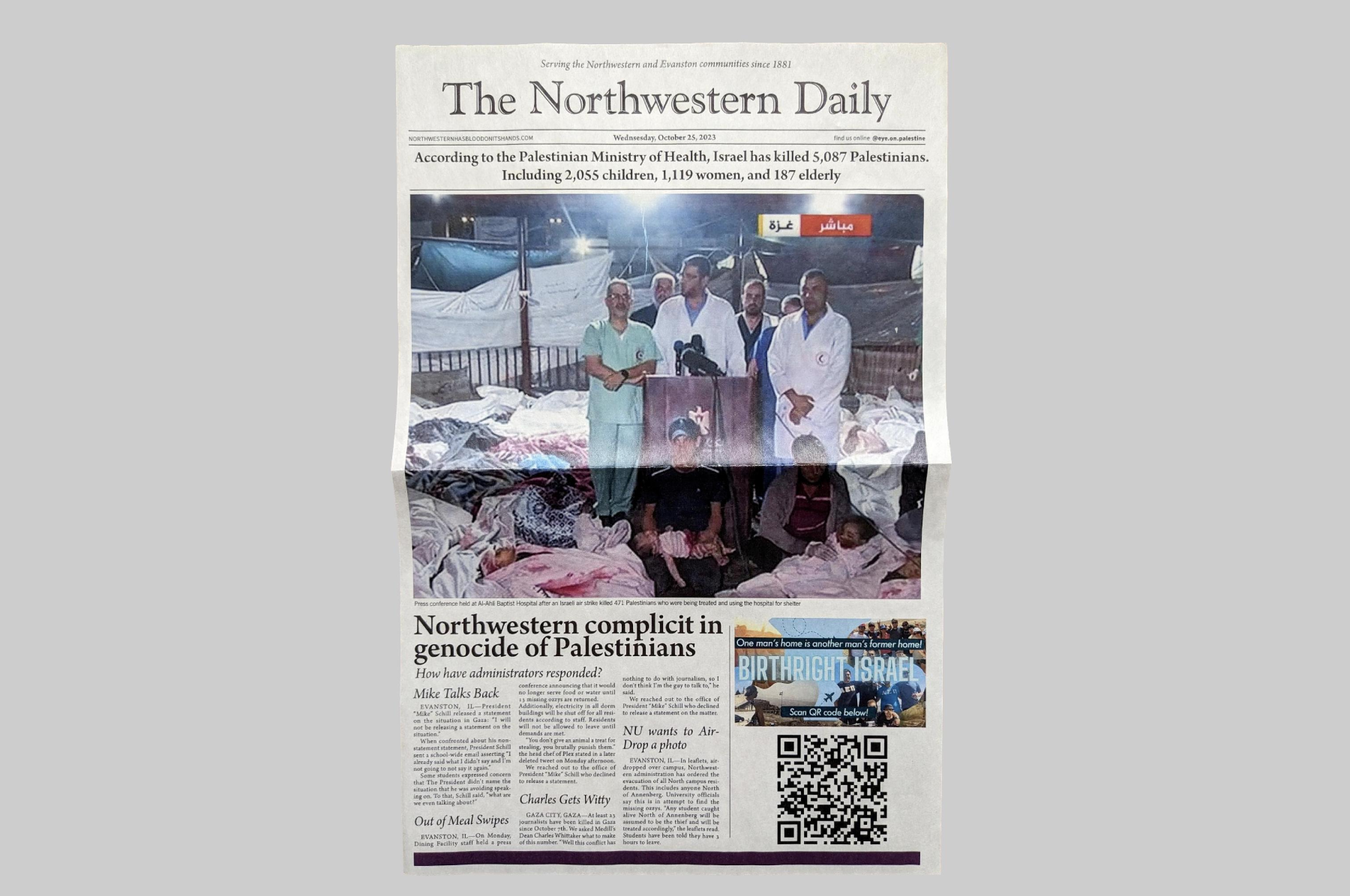This article was co-published with The Intercept.
Following days of backlash, prosecutors have decided to drop the criminal case against two Northwestern University students who created a parody version of the school’s student newspaper attacking Northwestern’s stance on the war in Gaza.
Police brought the misdemeanor charges after the company behind the university’s student paper, Students Publishing Company, or SPC, announced that it had “engaged law enforcement to investigate and find those responsible.” The mock front page featured fake quotes from school officials, accusations of Israeli war crimes, and a fake ad for Birthright Israel — the travel abroad program that sends young American Jews to Israel — with the tagline “One man’s home is another man’s former home!”
But on Wednesday, following a report by The Intercept and Responsible Statecraft, SPC announced that it would actively seek for the charges to be dropped, and prosecutors agreed to close the case.
“Given the specific nature of these cases, we have thoroughly reviewed the circumstances and engaged in discussions with Northwestern University and its campus newspaper provider,” said the Cook County State’s Attorney’s Office in a statement. “As a result of this review, we have decided to dismiss the charges.”
Prosecutors say the misdemeanor charges were filed directly by police and were not actively approved by the state’s attorney’s office. “Our criminal justice system should only be utilized when there is no other recourse for accountability,” the prosecutors added. “Northwestern University and campus police are fully equipped to hold the involved individuals accountable, ensuring that such matters are handled in a manner that is both appropriate to the educational context and respectful of students' rights.”
The reversal follows days of harsh backlash from students, faculty, and alumni of Northwestern. More than 70 student groups had promised to boycott the Daily Northwestern until charges were dropped, and more than 5,000 people signed a petition calling for the case to be dropped.
As Responsible Statecraft and The Intercept reported Monday, the two students, both of whom are Black, were charged with theft of advertising services, a little-known law originally proposed to prevent Ku Klux Klan members from inserting unauthorized ads into newspapers. By wrapping some copies of their parody paper around the Daily Northwestern itself, the students opened themselves up to liability under the statute, which carries penalties of up to a year in prison and a $2,500 fine.
The report led to sharp criticism from media figures, including Washington Post columnist Karen Attiah, who called the charges “outrageous.” Daniel Denvir of Jacobin slammed the decision to pursue the case as “absolutely outrageous and hysterical repression.”
The SPC board, led by Chicago-area attorney John Byrne, released a statement expressing regret that students faced criminal penalties and announcing that the group would hire attorneys to help get prosecutors to drop the charges. "We didn’t understand how these complaints started a process that we could no longer control – and something we never intended," Byrne wrote in the statement, arguing that he did not understand that a complaint to police would lead to charges.
In explaining its reversal, SPC said it had not previously known that the people charged were Black and students at Northwestern. Byrne said the board hopes to rebuild trust with the Northwestern community.
“We hope to heal the hurt and repair the relationships that have been damaged and frayed by our unintentional foray into the criminal justice system,” he wrote in the statement.















